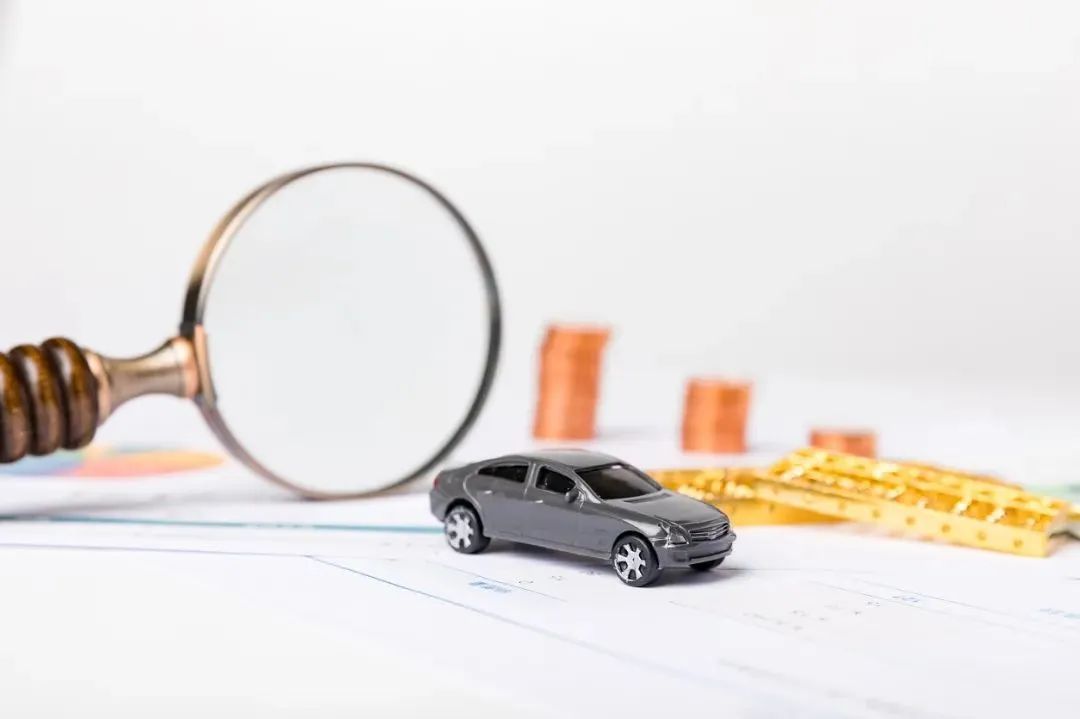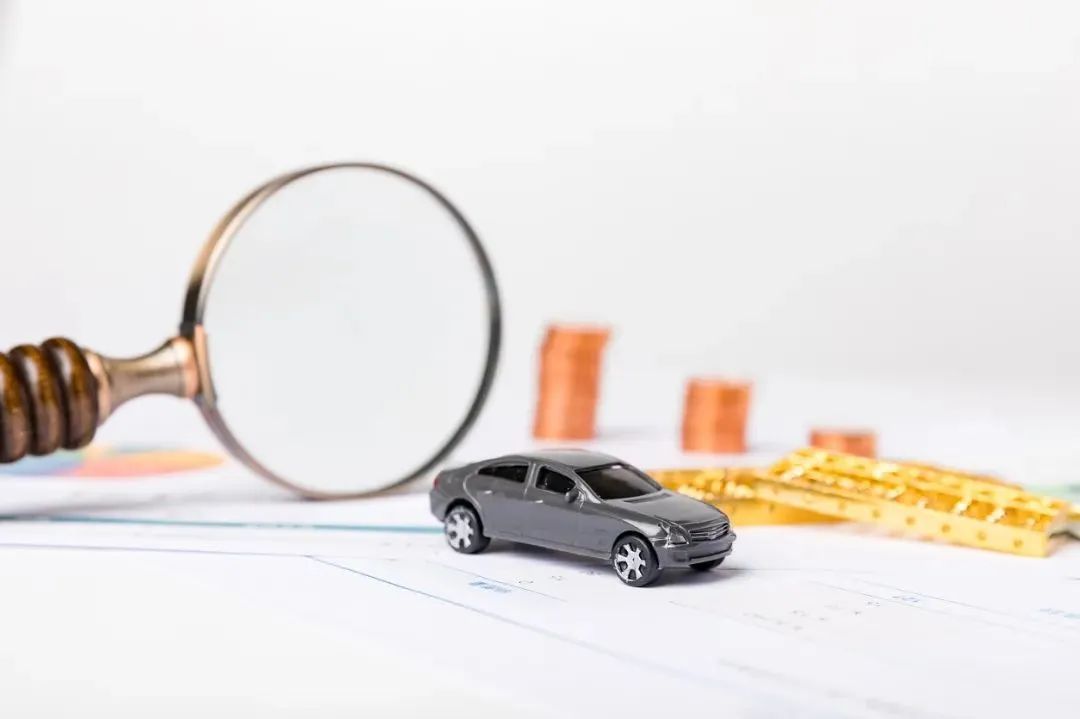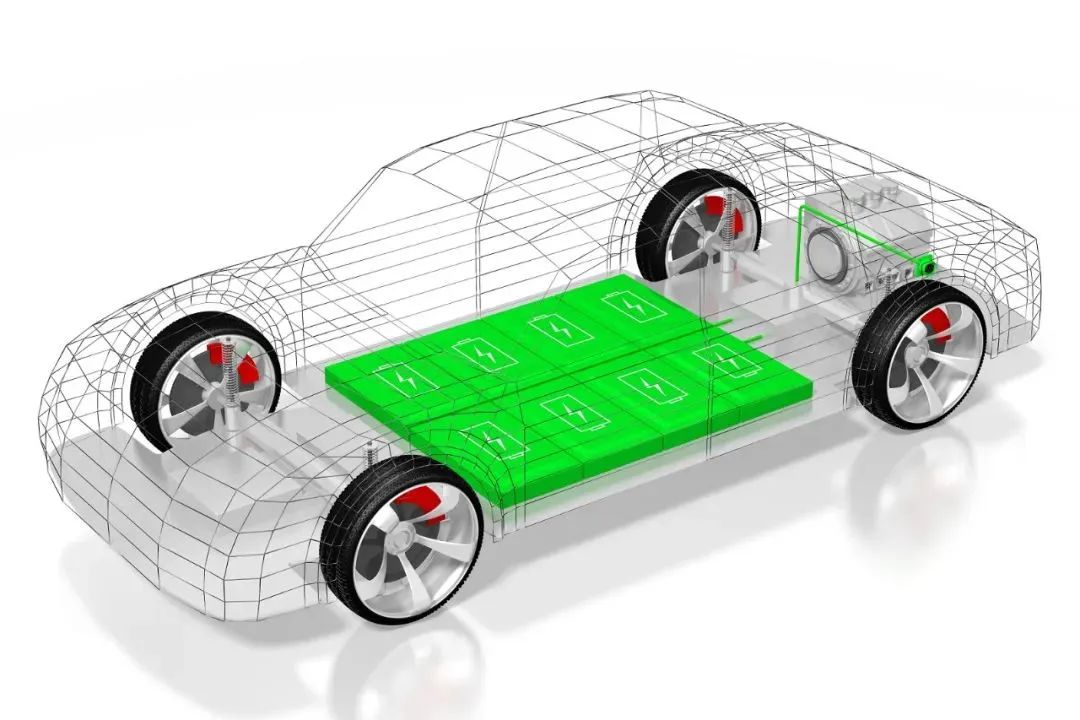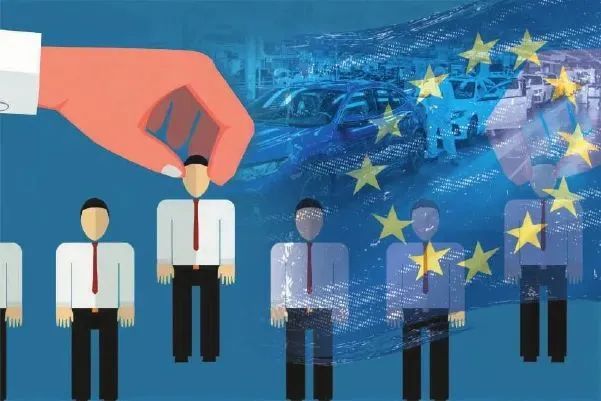

Recently, Bosch, Continental Group, Magna, Valeo, Lear, Schaeffler, Ambof, BorgWarner, Peipeitech and other parts giants have announced 2023 financial results. Compared with the difficult 2022, in the past 2023, with the strong recovery of the world's major automotive markets, most of the parts giants have risen steadily.
However, at the same time, the slowdown in the electrification transformation of the European and American markets has brought no small impact to those parts giants who are bent on "electricity". Coupled with geopolitical uncertainties, inflation and other problems still persist, many parts manufacturers have launched a series of measures such as layoffs and structural adjustments.
Many suppliers have recovered significantly
"Fiscal year 2023 was more difficult than expected for Bosch. Despite significant challenges, we did our best to grow sales, improve margins and make progress." Stefan Hartong, Chairman of the Board of directors of Bosch Group, said at the results conference.
As the global "hegemon" in the field of auto parts, in 2023, Bosch Group's revenue reached 91.6 billion euros (about 720 billion yuan), an increase of 8% (nominal growth of 4%) after deducting the impact of exchange rates; Ebit rose 24% to 4.6 billion euros (about 36.2 billion yuan). The EBIT margin was 5%, up from 4.3% in 2022. Among them, the Group's most heavily relied automotive business, namely the renamed Intelligent Mobility division, accounted for the highest share of revenue, reaching 56.3 billion euros, an increase of 7%, and excluding the impact of exchange rates, an increase of 11%, is the strongest growth of the business area, mainly due to the performance of traditional fuel vehicles and electric vehicles.
Continental Group also fully recovered blood, revenue, profit, profit margin and other major indicators have increased significantly. Data show that in 2023, Continental Group's revenue reached 41.4 billion euros (about 325.3 billion yuan), an increase of 5%; Net profit was 1.2 billion euros (about 9.4 billion yuan), up from 67 million euros in 2022; The adjusted EBIT margin was 6.1%, up from 4.9% in 2022. In response to the good results, Continental's management proposed a dividend of 440 million euros to shareholders, equivalent to 2.2 euros per share, which is an increase of nearly 50% from the previous year's 1.5 euros per share.
It is particularly worth mentioning that Continental's three segments, the largest proportion of revenue of the automotive sub-group, after several years of losses, finally turned a profit. Thanks to strict expense control, stable raw material prices and lower special logistics expenses, the Automotive sub-group's adjusted EBIT margin improved from -0.3% to 1.9% in 2023, and revenue increased by 11% year-on-year to 20.3 billion euros.
Look at Lear, a well-known supplier of car seats and electronic and electrical technology, although the strike of American workers against the "Detroit three" has brought a certain loss of performance, but benefited from the recovery of the global market, and its revenue increased by 12% in 2023 to reach $23.5 billion (about 168.7 billion yuan); Net income was $573 million, up 75 percent from a year earlier. For Lear, the slowdown in the electrification transition is not a nightmare, after all, cars need seats regardless of the powertrain. Lear executives believe more internal combustion engines could also be a boost to the company's business.
Magna, the "foundry emperor", also achieved a good harvest. Data show that its 2023 revenue increased 13% year-on-year to $42.8 billion (about 307.2 billion yuan), and net profit was $1.2 billion (about 8.6 billion yuan), up 105% year-on-year. Magna's operating results are primarily dependent on customer production of passenger cars and light trucks in North America, Europe and China, all of which saw production growth in 2023.
Independently listed Fipai Technology beat expectations in 2023 thanks to large orders for electrification in China and the European market. Consolidated sales in 2023 still achieved growth, reaching 9.23 billion euros (about 72.2 billion yuan), an increase of 4.4%. Thanks to the further improvement in operations, EBIT reached €341 million (about 2.67 billion yuan) and profit margin reached 3.7% (2022:2.5%), much higher than expected. Andreas Wolf, chief executive Officer of Peipai, said at the earnings conference: "2023 was a challenging but fruitful year. The company achieved further profitable growth, won important orders and consolidated its leading position in the e-mobility market." On March 14, Anlang said in an interview with China Automotive News: "In 2024, China's auto market will usher in a small growth. The growth of the Chinese auto market in the next two years is optimistic, especially in the field of electric vehicles. For Peipai, we expect further growth in our business volume in China."
Europe and the United States market electrification "cold"

The sharp cooling of the wave of electrification in the European and American markets has caused a greater psychological impact on those parts giants with electric transformation, and the impact of performance impact has gradually begun to emerge. Taking Valeo as an example, the data shows that in 2023 Valeo orders totaled 34.9 billion euros; Full-year revenue was 22.044 billion euros (about 173.3 billion yuan), an increase of 10%; Net profit was 221 million euros, or about 1.7 billion yuan, down 4 percent from a year earlier.
Valeo revealed in the earnings report that its high-voltage drive business performed well in the first half of 2023, with revenue doubling to 847 million euros, but in the second half of the year, the company had to face a significant decline in the production of certain electric vehicle platforms in Europe, and high-voltage drive business revenue fell to 598 million euros from 644 million euros in the same period in 2022. The drop was 7 percentage points. Valeo expects that despite the large number of orders, its electrification business is expected to stagnate in the next two years due to the impact of the general environment.
Due to lower than expected growth in the automotive market, especially electric vehicles, Valeo has had to reduce its 2025 net revenue forecast set out in the "Move up 2025" strategic plan from 27.5 billion euros to 24.5 billion euros to 25.5 billion euros. In addition, Valeo CEO Christophe Peria pointed out that the company's Polish plant focused on internal combustion engines, hybrid drivetrains and electric vehicles, while the now-closed German plant was too dependent on electric vehicles. It is understood that its German factory is mainly for Mercedes-Benz and Volvo R & D and manufacture of high-voltage motors, multi-in-one electric drive systems, etc., and the reason for the closure is that the major customer Mercedes-Benz canceled the value of the electric drive business order.
Borgwarner had similar problems, failing to meet its promise of electrification breakeven by 2023. The report showed that its electric drive business had an adjusted operating loss of $90 million in 2023, and the loss was larger than that in 2022 (-$88 million). Overall, BorgWarner's full-year revenue was $14.2 billion (about 102 billion yuan), an increase of 12.4%; Net income attributable to the parent was $625 million, down 34 percent from a year earlier. The company's share price fell after the results were released. From the perspective of stock dividends, BorgWarner will pay out $2.67 per share in 2023, a reduction of nearly 50% from 2022 ($3.99 / share).
Battery manufacturers can also see the impact of the slowdown in electrification, especially in the second half of last year. Taking LG New Energy as an example, the annual performance of 2023 achieved a significant growth, but specific to the fourth quarter, revenue and net profit both declined year-on-year, including net profit of 190 billion won (about 9 billion yuan), down 31% year-on-year, down 55% quarter-on-quarter. Tesla, one of the company's major customers, warned at the beginning of the year that its sales growth would slow significantly in 2024. Another big customer, Hyundai Motor, also said its electric vehicle sales growth in 2024 May be slower than expected. This will undoubtedly affect the shipments of battery manufacturers.
The pressure is transmitted to the supplier
Fundamentally, electric vehicles are a growing market. "But, as we are hearing from automakers, the pace of growth will be slower than previously expected." As The head of Bosch, Hartong recently said in an interview with foreign media The Pioneer. He predicted that cars with internal combustion engines would still be needed for decades to come, and that it would take at least 30 to 35 years to electrify all vehicles in the world.
At the macro level, Bosch expects the global economy to grow by only 2% to 2.5% in 2024. "We predict that the global economy will gradually recover by 2025. The outlook for all of Bosch's business areas is uncertain." Bosch board member and chief Financial officer Markus Forschner said. As a result, Bosch has had to delay its 7 per cent margin target by one to two years.
Up to now, the electrification business of most vehicle companies is still in a state of loss, coupled with the price war, the pressure has been transmitted to parts companies. A research report from Roland Berger pointed out that traditional parts suppliers face a similar dilemma to car manufacturers, and the transition to electrification requires large upfront investments, but electric vehicles are still in the transition and market penetration stage, and fewer parts manufacturers can bring enough revenue to balance the expenditure.

Earlier this year, ZF announced its biggest job cuts to date, cutting 12,000 jobs over the next few years. Continental Group officially announced the number of layoffs, also from the previous media exposure of 5,500 people, increased to 7,150 people. Furia, formed by the merger of Faurecia and Hella, plans to cut up to 10,000 jobs in Europe over the next five years.
In addition, it is worth noting that the layoffs of parts companies are not limited to the internal combustion engine department, but also affect electrification and intelligentization related positions. Bosch, for example, not only plans to cut at least 1,500 jobs at two German transmission plants, but also plans to cut about 1,200 jobs in its software and electronics division by the end of 2026.
In an interview with foreign media, Hartong expressed a pessimistic judgment on the future: "In the next one to two years, the company will be difficult to reach the expected sales and profit targets." 2024 is going to be more difficult than expected, and probably 2025 as well." Perhaps, this is also an important reason why parts manufacturers have broken arms to adjust.
Declaration: This article comes from the China Automotive News.If copyright issues are involved, please contact us to delete.